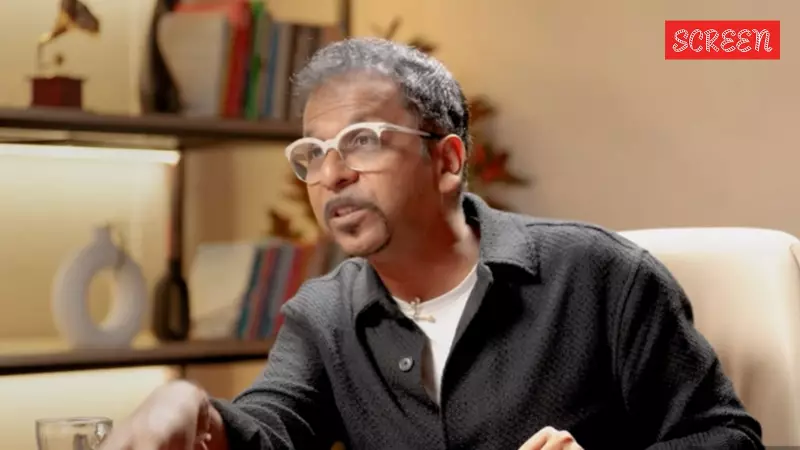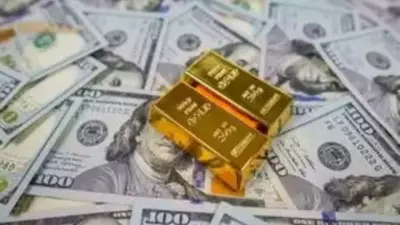
Darpan Singh, the former CEO of Good Glamm Group and an investor on Amazon Prime Video's Pitch To Get Rich, has revealed the shocking collapse of his once-thriving Rs 7,000 crore beauty empire that crashed to zero virtually overnight.
The Downfall of a Beauty Giant
In July 2025, Singh posted an emotional LinkedIn note acknowledging the severe financial crisis that hit Good Glamm Group. The company's downfall began when a major acquisition deal, intended to secure the company's future, collapsed at the final moment. This occurred when the acquiring company's CEO unexpectedly stepped down, triggering a devastating liquidity crunch.
The situation deteriorated so badly that we struggled to pay employee salaries and even our vendors, Singh confessed in his post. Since that catastrophic event, the company has been desperately trying to generate cash and keep whatever remained of the business operational.
Reflecting on Critical Mistakes
In a recent interview with Think School Hindi by Zero1, Singh reflected on the strategic errors that led to Good Glamm's spectacular downfall. These mistakes ultimately forced the group to sell its individual brands piecemeal to different buyers.
Popular brands including MyGlamm, The Moms Co., Sirona, St. Botanica, and Organic Harvest will now be independently led by their new owners, marking the complete dismantling of what was once hailed as a revolutionary house of brands.
Good Glamm had pioneered a unique content-to-commerce model by blending personal care with digital media through platforms like POPxo and BabyChakra. Founded in 2017, the company experienced meteoric growth, soaring from a valuation of Rs 40 crore in 2020 to Rs 650 crore by 2023 before its dramatic decline within a single year.
The Momentum Trap That Destroyed Everything
Singh admitted that his biggest mistake was allowing unchecked growth to blind his business judgment. I should have known when to stop and consolidate, he stated regretfully. Instead, I kept burning to grow. The same momentum that made me a unicorn turned into a trap - what I now call the momentum trap.
After achieving unicorn status in early 2020, Singh continued chasing aggressive expansion. I had raised money, finished acquisitions - that was the time to take a breath and stabilise. But instead, I pursued my biggest acquisition yet - a Rs 3,000 crore deal that could have doubled my valuation to USD 2 billion, he revealed.
Singh spent six months working on this massive deal while focusing on showing monthly growth instead of fixing the company's profit and loss statement. This approach burned through enormous amounts of capital without creating sustainable business foundations.
Ignoring Core Metrics and Investor Warnings
The former CEO reflected on how startups must define one core metric per quarter - a principle he completely ignored during Good Glamm's expansion phase. In January 2022, my key goal should have been CM2 profitability - profit after marketing costs. But because I wanted to raise money for another acquisition, I chased topline growth at the cost of the bottom line, he admitted.
The numbers tell a compelling story of misaligned priorities. In 2021, my only focus was customer acquisition. By the end of the year, we had 3.5 lakhs transacting customers every month. I should have made those transactions profitable, but I didn't. I lost 1.5 years - and around Rs 600 crore, Singh shared.
The rapid expansion created organizational chaos within the company. We went from 200 to 1,200 employees in just three months. We had 11 companies, multiple founders, and too many senior hires from large corporations. I lost my core team in the process, he explained.
Final Regrets and Lessons Learned
In his ambitious pursuit to transform Good Glamm into the next Unilever, Singh admits he lost everything he had built over eight years. I wanted everything. I moved from online to offline, burned Rs 300 crore there - trying to achieve 10 years of growth in one year. I bought companies back-to-back, launched campaigns with multiple celebrities - all at once, he shared.
Even his investors repeatedly warned him about his unsustainable growth strategy. Andre kept telling me, 'Darpan, get profitable.' But I told him, 'You run an old-school business. L'Occitane is old school.' I didn't listen, Singh said with evident regret.
A single thought now haunts him every night - the realization that his inability to balance growth with profitability destroyed an empire that once showed incredible promise in India's competitive beauty and personal care market.





